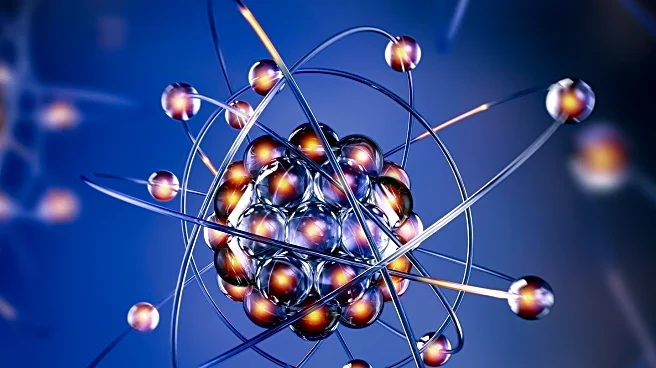What's Happening?
Andreas Kalcker, PhD, presented his research on chlorine dioxide as an 'electromolecular regulator' during a medical roundtable. Kalcker, a biophysicist, has studied chlorine dioxide for over two decades
and proposes its use as a targeted agent to address energetic failures underlying diseases. He emphasizes that illness is not merely pathogen overgrowth but involves an energetic low-voltage terrain where oxidative therapies can restore order. Chlorine dioxide, when applied correctly, has potential applications in infections, chronic inflammation, and oncology. Kalcker stresses the importance of precise preparation and medical supervision, cautioning that chlorine dioxide is not a cure-all but can be beneficial when used appropriately.
Why It's Important?
Kalcker's presentation on chlorine dioxide offers a novel perspective on disease treatment, focusing on energy and bioelectrical communication rather than traditional pharmacological approaches. This could lead to new therapeutic strategies that prioritize restoring cellular energy and redox balance. The potential applications of chlorine dioxide in treating infections and chronic conditions could provide alternative solutions for patients who do not respond well to conventional treatments. However, the use of chlorine dioxide in medicine remains controversial, with regulatory bodies warning against unapproved medical use. The discussion around its therapeutic potential highlights the need for further research and clinical trials to validate its efficacy and safety.
What's Next?
Kalcker calls for formal research and medical training to explore electromolecular medicine systematically. The future of chlorine dioxide as a medical product depends on clinical trials and toxicological transparency. While some practitioners are interested in its potential, major pharmaceutical companies have yet to market chlorine dioxide as a medical product. Regulatory caution and scientific obstacles remain significant challenges, but continued interest and anecdotal case reports may drive further investigation into its applications.
Beyond the Headlines
The debate over chlorine dioxide straddles frontier biophysics and regulatory caution, challenging traditional medical paradigms. Kalcker's approach reorients medical thinking around energy and selective oxidative therapies, potentially influencing future research in electromolecular medicine. This shift could lead to a broader understanding of health and disease, emphasizing the importance of cellular energy and bioelectrical communication in therapeutic applications.











